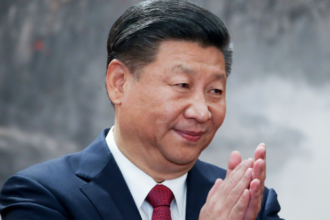DAKAR, SENEGAL – Amidst growing concerns over unemployment, poverty, and lagging socio-economic development in West Africa, regional analysts and development experts are calling on leaders and officials to prioritize the implementation of robust domestic policies and programs designed to directly address these pressing issues.
The call comes as many countries in the region grapple with the persistent challenges of a rapidly growing youth population with limited job opportunities, widespread poverty exacerbated by rising inflation and global economic uncertainties, and a general lack of equitable access to essential services including affordable and quality healthcare, and livable housing.
“The current trajectory is unsustainable. We need a fundamental shift in focus towards policies that generate tangible benefits for the average West African citizen,” stated Jones N. Williams, a leading public philosopher and public policy professional.

City Manager of Monrovia, the political and economic capital of Liberia
Experts argue that while international aid and partnerships are valuable, sustainable and equitable development hinges on the implementation of well-defined national strategies tailored to the specific needs and contexts of each country. This includes:
- Investing in Education and Skills Development: Programs that equip young people with the skills demanded by the modern workforce are crucial for reducing unemployment and promoting entrepreneurship. This requires not only expanding access to education but also reforming curricula to align with industry needs.
- Promoting Agriculture and Rural Development: Agriculture remains a significant sector in many West African economies. Investing in modern farming techniques, improving access to credit and markets for farmers, and developing rural infrastructure can boost food security, create jobs, and reduce poverty in rural areas.
- Strengthening Governance and Transparency: Good governance, transparency, and the rule of law are essential for attracting investment, reducing corruption, and ensuring that resources are used effectively for development purposes.
- Supporting Small and Medium-Sized Enterprises (SMEs): SMEs are the backbone of many economies and can play a vital role in job creation and economic diversification. Providing access to capital, training, and mentorship for SMEs is crucial for fostering entrepreneurship and driving economic growth.
- Investing in Infrastructure: Improved transportation networks, reliable energy supply, and access to clean water and sanitation are fundamental for attracting investment, promoting economic activity, and improving the quality of life for citizens.
“We have seen numerous plans and strategies come and go. The key now is effective implementation, accountability, and genuine commitment from West African leadership,” added Williams.
The pressure is mounting on West African leaders to demonstrate tangible progress in addressing these socio-economic challenges. With demographic changes and youth population growing in several countries in the region, citizens are increasingly demanding accountability and results. The upcoming months and years will be critical in determining whether West African leaders and officials can rise to the occasion and deliver on their promises of a more prosperous and equitable future for West Africa.









